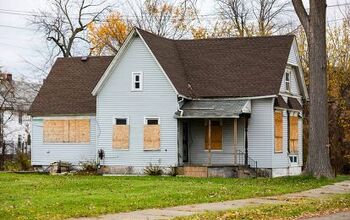Can I Quit My Job After Closing On A House?

The majority of individuals use a mortgage to purchase a home because it is a costly investment. However, obtaining a mortgage is a lengthy process that necessitates the existence of a source of income. So, that begs the question: Can you quit your job after closing?
You can quit your job after closing on a house; however, you should wait until the lender has funded the loan to avoid jeopardizing your chances of finishing the process. Before resigning, double-check the loan terms to make sure you’re not breaching any, and think about your income and savings, as you will still need to pay the mortgage bill.
The majority of individuals use a mortgage to purchase a home because it is a costly investment. However, obtaining a mortgage is a lengthy process that necessitates the existence of a source of income. Below we will talk more about this subject so you can make the right decision for you and your family.
When Can You Quit Your Job After Getting a Mortgage?
After the lender finances the mortgage, you can quit your job at any moment. The lender cannot rescind the mortgage once you have closed on a house, signed the mortgage documents, and received the funds. However, you do need to make sure you make the required payments; otherwise, you will breach the contract.
If you plan to quit your work after closing on a house, you should make sure you finish the closing process and possibly wait a few months before doing so. Because the lender can’t cancel the loan until you’ve paid for the house and received the keys, the optimum time to quit is after you’ve paid for it and received the keys.
What to Consider When Quitting Your Job After Signing a Mortgage
After committing to a mortgage, quitting your job is a major decision, so think about the following points before making the serious leap.
Source of Income
It’s critical to consider whether you have another source of income if you plan to quit your work after receiving a mortgage. You must make your mortgage payments; therefore, having a source of income that enables you to do so is critical.
People usually leave a job because they have a better offer or wish to start their own business. Before you quit your job and establish your own business, you must have certain revenue obligations in place, such as long-term contracts.
A job provides a constant revenue stream, which is highly important to the lender. So, before quitting your stable employment to pursue your entrepreneurial goal, make sure you can count on a continuous income.
Savings
A buffer is something else to think about. This is enough money to cover your mortgage payments for up to 6 months. It’s critical to be prepared for any emergencies or unforeseen occurrences, regardless of why you’re quitting your current employment.
Anything that delays your planned cash inflow won’t impair your capacity to pay your mortgage on time if you have six months’ worth of savings.
Check the Loan Terms
Insecurity clauses can be included in the section of most mortgage and home loan contracts that allow for loan acceleration in certain circumstances. If the lender has a reasonable concern that the borrower will not be able to repay the loan, the insecurity clause empowers the lender to accelerate the loan.
The term “acceleration” refers to a lender’s demand that the loan is paid off in full within a certain amount of time, and if that isn’t done, the debt will be foreclosed. When it comes to home mortgages, this only happens in rare situations, and being unemployed is unlikely to trigger this as long as you’re making your payments on time.
Also, quitting your job after closing may have an impact on your mortgage if the loan is only available to particular professions or employers, and quitting your employment puts you out of that category. If you don’t stay in the same job for a certain period of time after acquiring the loan, there may be a penalty provision.
The same rule applies if quitting your employment will result in your home becoming a rental property, such as if you’re leaving for a new job. Some mortgages require you to stay in the house for a period of time.
What Factors Affect Your Chance of Getting a Mortgage?
Several things may influence your ability to close on a home. Some of these elements are:
Income
Perhaps the most crucial factor that the lender will evaluate is your ability to repay the loan. They’ll usually do this by looking at your work history. Because the lender prioritizes stability over all else, the income requirements may be pretty rigorous.
Employment History
Before providing you with a loan, the lender will look at your work history. Your chances may be decreased if you change jobs. For example, if you switch from one industry to another, you may need to work for a couple of years, at least two, before applying for a loan. This is true even if your income is the same or higher, as lenders like consistency.
If you’re beginning your own business, the same rules apply. Typically, the lender would need two years’ worth of tax returns as well as profit-and-loss statements.
Downpayment
A person must make a 5% down payment on a mortgage. However, this is different in each area, so check with your local community.
Depending on the loan’s value, the down payment varies, but anything less than 20% requires home loan insurance. When assessing your loan application, lenders will look at the source of your downpayment, so borrowing the money could impair your prospects.
Credit Score
Your credit score is determined by your debt and payback history, which is another element the lender would evaluate. The lender’s perception of you is influenced by your credit score, which defines your creditworthiness. You have a better chance of acquiring a mortgage if you have a strong credit score.
Can a Mortgage Loan be Denied After Closing?
A mortgage can be refused after the borrower signs the closing documents, albeit this is uncommon. For example, in some states, the bank can fund the loan after the borrower has closed. Sometimes things fall through before the money is transferred.
Because borrowers have a three-day right of rescission, this might happen during a refinance transaction. Borrowers have the right to cancel the loan within this time period; thus, the bank may decide to delay transmitting the funds.
How to Avoid a Mortgage Denial At Or After Closing
According to mortgage data firm ICE Mortgage Technology, the underwriting process takes an average of 51 days. During this pre-closing period, you should not modify anything about your financial status. This is a huge loan that comes with a slew of responsibilities, which also comes with a great deal of scrutiny.
Take the following measures to improve your chances of success:
- Don’t open new credit accounts
- Taking up additional loans or credit cards may indicate to lenders that you are having financial difficulties. It may also raise your debt-to-income ratio, putting your loan at risk.
- Keep an eye on your credit card accounts.
- To maintain your credit healthy, make on-time payments and avoid building up a balance to keep your DTI ratio low. Try to postpone major purchases, such as furniture for your new house, until the loan is closed.
- Don’t switch jobs
- If at all feasible, keep your employment during the mortgage procedure. Changing jobs or roles may cause your mortgage application to be delayed because your lender will need to re-verify your employment and income.
- Communicate with your lender
- Keep your loan officer informed if you need to change employment or open new credit accounts. They can assist you in determining how to lessen the effect on your mortgage application.
What Should You Do If Your Loan is Denied at Closing?
According to the Federal Trade Commission, if your mortgage application is declined, the lender must explain why or inform you that you have the right to inquire about the reasoning.
The rationale must also be specific. The bank, for example, may claim that you haven’t worked long enough. The bank must explain why you were given less-than-favorable terms, such as a high interest rate.
Once you know why the mortgage was declined, you can take action. For example, if you know your loan was declined because you moved jobs, start the application procedure anew. You can also submit an application to a different lender. Each one has its own set of financing criteria, and just because one lender turned you down doesn’t imply that another would.
What Comes After Closing on a House?
Your loan becomes final, and the funds are disbursed when you close on a home. This is when you become the legal, official owner of your home. Usually, these two things happen at the same exact moment. As a result, your mortgage loan becomes final on the closing day, and you receive the keys to your new house.

Heather is a passionate writer who loves anything DIY. Growing up, she learned everything from home repairs to design, and wants to share her tips with you. When she's not writing, she's usually hiking or searching for her next DIY project.
More by Heather Robbins

















![Finishing Basement Without Permit [Is It Really Illegal?]](https://cdn-fastly.upgradedhome.com/media/2023/07/31/9070078/finishing-basement-without-permit-is-it-really-illegal.jpg?size=350x220)












